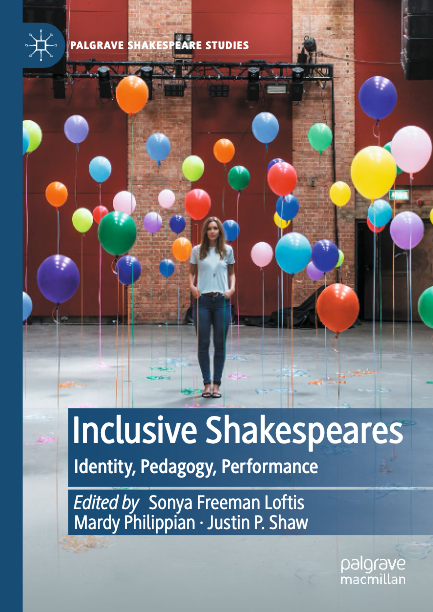Radical Listening and the Global Politics of Inclusiveness
Inclusive Shakespeares: Identity, Pedagogy, Performance, ed. Sonya Freeman Loftis, Mardy Philippian, Justin P. Shaw (Palgrave, 2023), pp. 221-234 ::: ISBN 978-3-031-26521-1 ::: DOI 10.1007/978-3-031-26522-8_14
Inclusiveness in higher education is distinct from advocacy journalism, which means we have to work actively against any ineffectual default to rituals of inclusion. When implemented unilaterally as a one-size-fits-all social imposition, some gestures of inclusion risk becoming empty rituals.
As multifocal, multilingual, and multicultural viewpoints, global perspectives can enhance inclusiveness in academia. This chapter demonstrates the application of strategies for global inclusiveness to Shakespeare studies in the classroom.
Joubin suggests that through radical listening—a set of communication methods that attend to motivations rather than superficial “plots”—students can acquire new skills to analyze complex cultural texts and thereby gain empathy beyond their academic work.
Global perspectives can help us tackle the pervasive Whiteness and cisgender sexism of Shakespeare studies by deconstructing the binary logic of a Black-White or male-female order (which inadvertently naturalizes the two as monolithic concepts).
Education is only reparative when it is designed from the ground up to be truly inclusive rather than being a mindless replica of evolving political correctness. Independent facility with complex cultural texts enables everyone to pierce the dense, euphemistic cloud of diversity categories that tokenize individuals and fictional characters based on any given identity marker.
